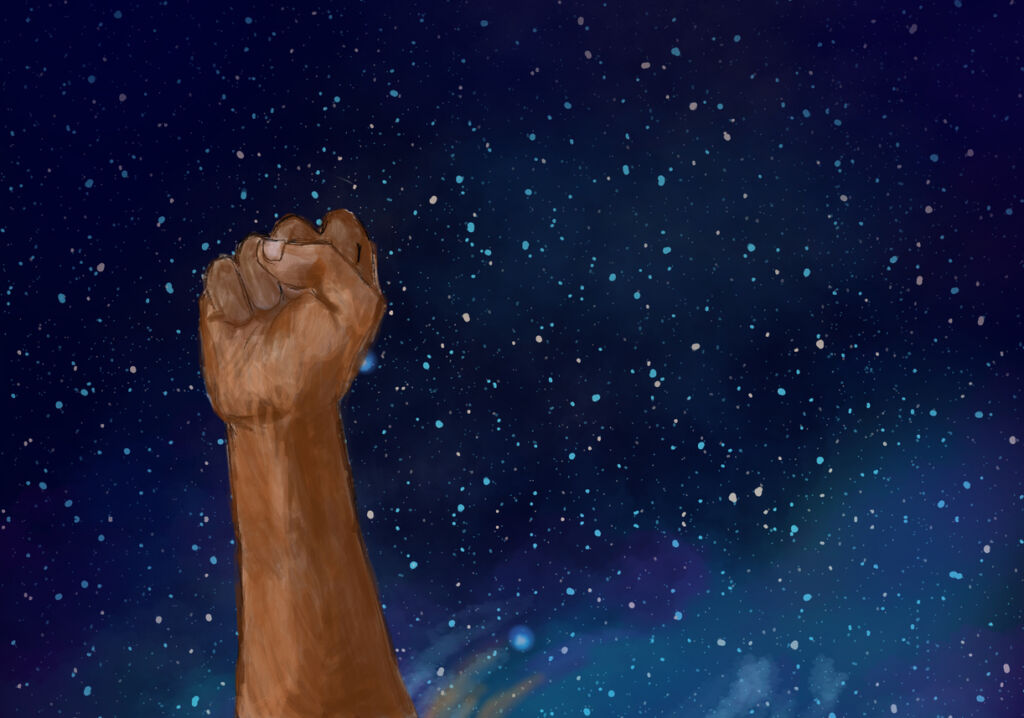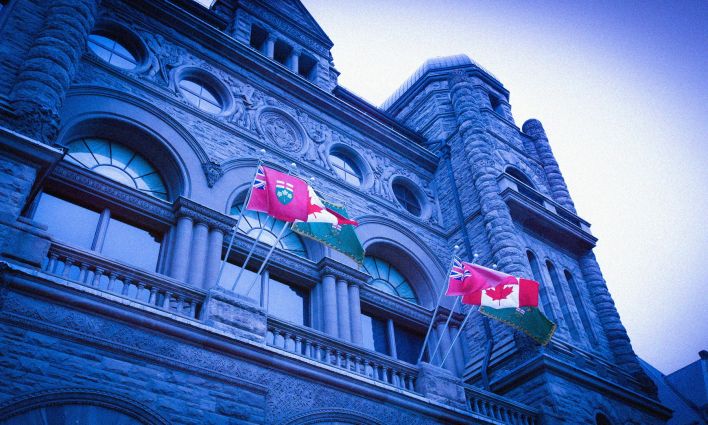When it comes to addressing anti-Black racism in Canada, I can’t help but think of the mythic plight of Sisyphus.
As the story goes, the Greek gods sentenced Sisyphus to an eternity of repeatedly rolling a large boulder up a hill, only to have it roll back down again once he reached the summit. The struggle for Black lives and well-being in Canada is Sisyphean through and through.
In my interpretation, Sisyphus represents Black communities in Canada. The boulder is anti-Black racism. The hill, in its progressive incline, represents increasing degrees of equitable access to education, employment, housing, health care and/or the policing, immigration and incarceration systems. And the gods? No, they’re not white people....
The gods—the ones who have condemned us to this fate—are any offices of authority, institutions and ideas which perpetuate, promote and/or protect white supremacist power at the expense of Black people in Canadian society.
The changing weather in which Sisyphus rolls the boulder up the hill represents Canada’s collective public consciousness and prevailing social attitudes, beliefs, values, and feelings toward Black people at any given time.
It’s hard to definitively determine whether 2020 represented a triumphant arrival at the top or the tragic return to the bottom of the Black community’s Sisyphean quest for equity and freedom in Canada.
On one hand, COVID-19 wreaked a disproportionately high degree of havoc on the lives of Black people in Canada (and continues to do so). As I’ve noted before, and as was recognized in the federal government’s fall economic update, Black communities consistently have the highest rates and concentrations of COVID-19 infections in Canadian cities that have collected and reported race-disaggregated data.
This is a consequence of the prevalence of Black workers in frontline retail and social and health service work, as well as the family caregiving roles that Black people, especially Black women, hold in our society for low wages, low respect and low support.
The labour market stratification that concentrates Black people in exceptionally vulnerable positions within the workforce has also meant that Black people have felt some of the worst impacts of the economic shocks wrought by the pandemic, including temporary and permanent closures and layoffs at companies and organizations across Canada.
High insurance rates and poorly planned city infrastructure have made individuals from Black communities more likely to be left using crowded public transit, increasing further risk of infection.
Because of a lack of affordable housing, Black individuals and families are also more likely to live in crowded homes in high-density apartment complexes.
These are among the primary socio-contextual factors that have contributed to higher rates of COVID-19 infections among Black populations, making 2020 an especially tough time for Canada’s Black communities.
On the other hand, 2020 positively ushered in a racial justice awakening that the world arguably hasn’t seen since the rise of the U.S. Civil Rights Movement.
The Black Lives Matter Movement seized global attention and gripped it for much of last year following the murder of a Black man, George Floyd, by white Minneapolis police officer Derek Chauvin.
The year 2020’s international racial reckoning centering Black lives and calls for social, economic and cultural justice led to waves of initiatives, programs, activities, policies and other previously unseen opportunities for Black community members, professionals and businesses to be seen, heard, supported, valued, employed, contracted and consulted on levels not known for more than a generation or two.
Many of Canada’s private and for-public-benefit sector leaders made several statements and new commitments to address anti-Black racism. While there hasn’t been an official tally, it’s likely that across Canada tens of millions of dollars were raised and distributed through new philanthropy efforts, corporate donations and crowdfunded support for Black community organizations and initiatives. For these reasons, 2020 might also be read as a return to the top of mount justice.
Based on these parallel histories of the year gone by, it’s reasonable to conclude that 2020 was both a peak and pit in the Sisyphean cycle of Black community life in Canada, as the year left much to sorrow and celebrate. But what will really determine whether 2020 was ultimately good or bad for Canada’s Black populations rides much more on what's to come in 2021 and beyond.
Justice for Black lives in Canada requires that we collectively break out of this Sisyphean condemnation. True progress means making sizable shifts in the improvement of the material conditions of Black communities, where equitable access to good jobs, housing, food, health care, education, and policing and carceral systems becomes the norm for Black people in Canada.
Making the most of the good and bad of 2021 requires a collective commitment to disrupting dynamics of racial power so that Black communities can be more self-determined and take control of the social well-being systems and structures that shape Black lives. Said another way, for all the Black Lives Matter statements, commitments and conversations of 2020 to be made real, 2021 must be a year focused on a process of redistributing economic, social, political and cultural power to Black communities, so that we can support, serve and protect our own interests and institutions.
I declare 2021 the year of reparatory justice for Black Canadians. We can and must break this boulder and march up Mount Justice once and for all, together.







